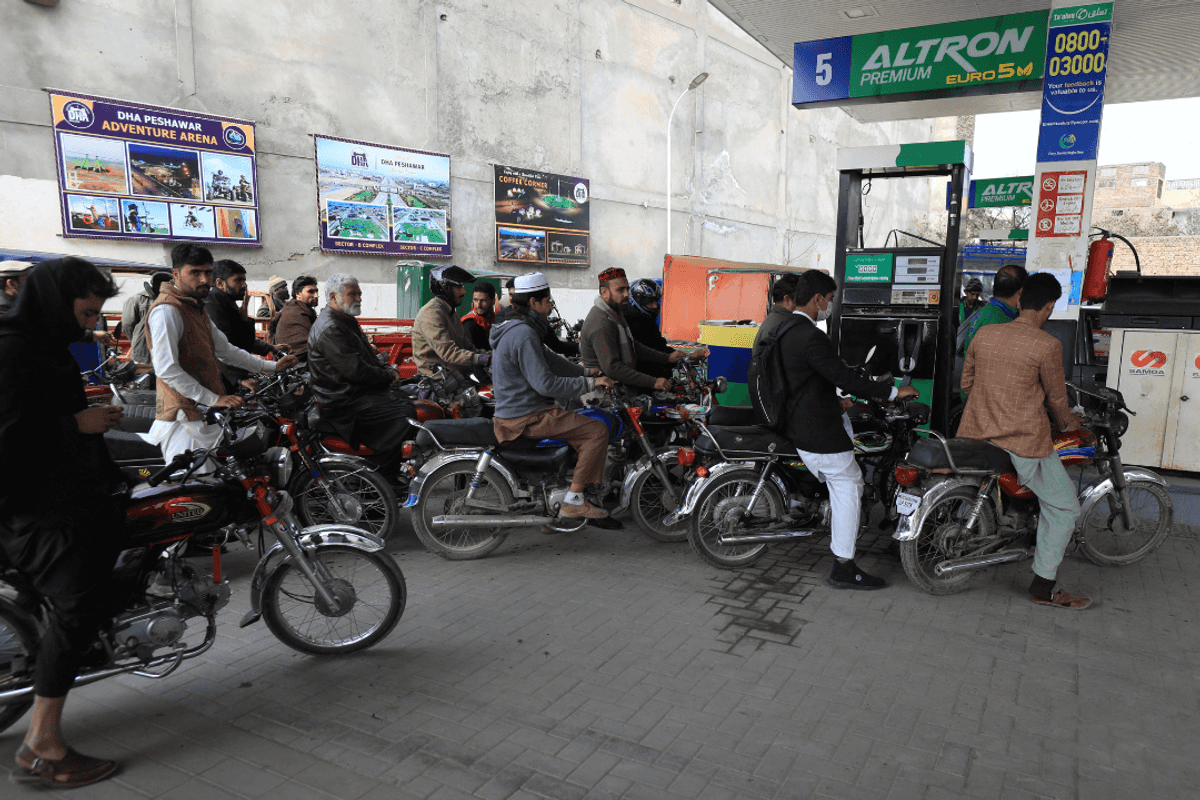Fuel prices likely to rise in Pakistan as global oil costs climb
Petrol may rise by PKR 1.67 and diesel by PKR 4.66 per liter from Sept 16, adding pressure on inflation and transport costs

Haris Zamir
Business Editor
Experience of almost 33 years where started the journey of financial journalism from Business Recorder in 1992. From 2006 onwards attached with Television Media worked at Sun Tv, Dawn Tv, Geo Tv and Dunya Tv. During the period also worked as a stringer for Bloomberg for seven years and Dow Jones for five years. Also wrote articles for several highly acclaimed periodicals like the Newsline, Pakistan Gulf Economist and Money Matters (The News publications)

Fuel prices in Pakistan are expected to rise again in the upcoming fortnightly review, driven by an increase in global oil prices, industry officials told Nukta.
Petrol prices are likely to go up by PKR 1.67 per liter, while high-speed diesel (HSD) may see a sharper increase of PKR 4.66 per liter. The expected hike comes as the international price of petrol climbed to $82.30 per barrel from $81.38, and diesel jumped to $88.23 per barrel from $85.41.
The new prices, if approved, will take effect from September 16, following a review by the Ministry of Finance based on recommendations from the Oil and Gas Regulatory Authority (OGRA).
The rise in global oil prices has been driven by tightening supply and continued geopolitical uncertainty, particularly in the Middle East and Eastern Europe. Any adjustment in domestic fuel prices is likely to impact inflationary trends and logistics costs in Pakistan, where energy prices play a central role in consumer and industrial expenses.
Separately, the federal government collected a record PKR 1,161 billion in petroleum development levy (PDL) during fiscal year 2024-25. However, it fell short of the revised target by PKR 60 billion.
For the current fiscal year 2025-26, the government has set an ambitious PDL target of PKR 1,468 billion, as outlined in the annual budget, expecting growth of 26%.
The petroleum levy, a key source of non-tax revenue, is imposed on petrol and diesel sales and has grown in importance as Pakistan navigates its fiscal consolidation path under IMF guidance. However, critics argue that rising fuel levies disproportionately affect lower-income groups and contribute to inflationary pressures.
Officials said the final fuel price adjustments will depend not only on international oil movements but also on exchange rate trends and taxation levels, including the petroleum levy.
The price revision comes as Pakistan continues to face fiscal and external pressures, despite recent improvements in foreign exchange reserves and a relatively stable rupee.







Comments
See what people are discussing